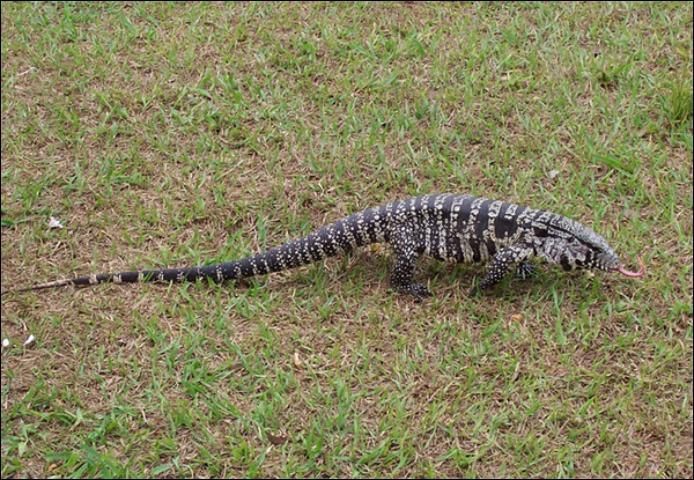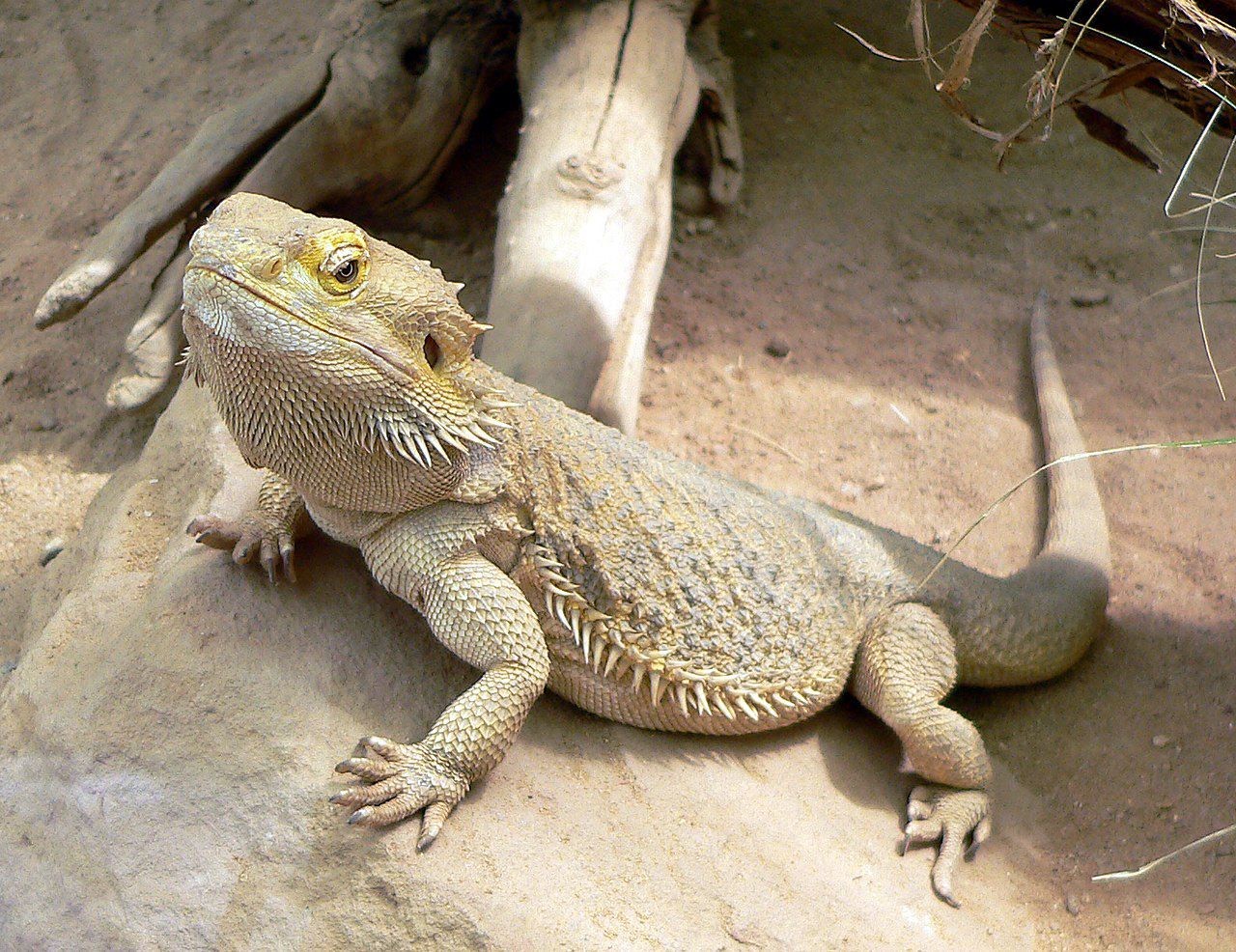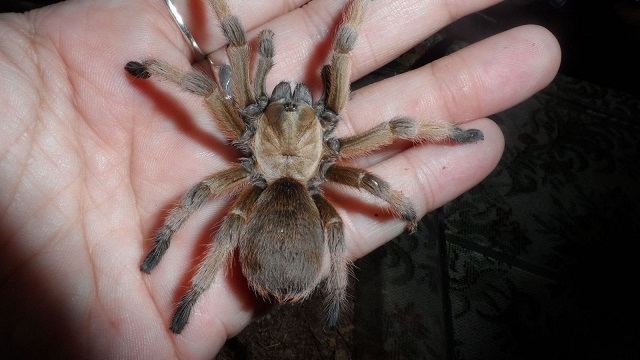NEPA concerned about unprecedented rise in exotic animals being held by individuals on the island
Published Date: July 28, 2023
The National Environment and Planning Agency is investigating the circumstances surrounding the operation of a mobile zoo with exotic species on display to the general public. Evidence of the zoo’s operation is being circulated on social media.
The primary species on display are the Argentine black and white tegu (Salvator merianae), Bearded dragon (Pogona sp.) and the Texas brown tarantula (Aphonopelma hentzi). These species are not native species protected under the Wild Life Protection Act – 1945, but are species either imported legally into the country through the pet trade, or brought in illegally across the country’s borders.
The public is hereby reminded that permits are required to import animals into the island as these may pose serious risks of introduction of disease as well as serious invasive potential that affects the natural ecosystem. Persons who intend to operate a zoo must apply for and obtain the requisite permit(s).
The NEPA will be consulting with the Veterinary Services Division of the Ministry of Agriculture, Fisheries and Mining and the Jamaica Customs Agency, the other key agencies with mandates regulating the introduction of non-native (exotic) species, to ensure that appropriate measures are in place to prevent the illegal importation of these species.
NEPA is also concerned about the publication of information across social media platforms promoting the hunting and trade of protected species such as the Jamaican boa (Chilabothrus subflavus), Yellow-billed parrot (Amazona collaria) and Black-billed parrot (Amazona agilis).
The importation and/or trade of these non-native species without requisite permits are illegal under the Endangered Species (Protection, Conservation and Regulation of Trade) Act - 2000. An offence under the Act can attract a fine of not more than two million dollars and/or up to two years imprisonment. Persons found in possession of the whole or part of a protected animal without an exemption certificate will be prosecuted under the Wild Life Protection Act. If one is found guilty, they become liable to a fine not exceeding 100,000 or imprisonment for a term not exceeding twelve months.
NEPA reminds the public to immediately contact the Agency at Tel #: 1-888-991-5005 or 876-754-7540 if persons are seen in possession of protected and exotic species.



ADDITIONAL INFORMATION
Wildlife Trade in Jamaica and the potential risk to public health
Introduction
First, it is important to note that not all wildlife trade is illegal. The Convention on International Trade in Endangered Species of Flora and Fauna (CITES) is the global governing body that regulates international wildlife trade. This is one of the largest United Nations (UN) conventions with 183 Parties being signatories including Jamaica since 1997. Since CITES focuses on international trade of endangered flora and fauna there is widespread local trade of wildlife that occurs within countries, a lot of which can go unregulated if there are no domestic laws.
The Jamaican scenario
Wildlife trade in Jamaica is regulated by the Natural Resources Conservation Authority/National Environment & Planning Agency further to several pieces of legislation: the Natural Resources Conservation Authority Act (NRCA), Wild Life Protection Act and the Endangered Species (Protection, Conservation and Regulation of Trade) Act. The ESA represents the incorporation of CITES into local laws and NRCA/NEPA is the designated local Management Authority for CITES.
Additionally, the Veterinary Services Division (VSD), Jamaica Customs Agency, the Jamaican Constabulary Force (JCF), the Jamaica Defence Force (JDF) and the Jamaican National Central Bureau of Interpol all have important roles preventing and combatting wildlife trafficking in Jamaica.
Most of Jamaica’s native wildlife are protected under the Wild Life Protection Act (1945) and so the legal pet trade is mainly centred on non-native species that are popular in the pet trade. These include exotic parrots such as African Grey, Yellow-naped Parrot, Rose-ringed Parakeets, lorikeets, cockatiels, macaws, budgerigars, finches, Red-eared Slider Turtles and an assortment of freshwater fishes. A few pet stores even offer snakes such as Ball Pythons; and tortoises for sale.
The illegal pet trade is much more worrying as these are often of wild caught animals from another country that are smuggled into the island.
Threat to Public Health
The possibility of a virus jumping the species barrier and infecting people in Jamaica is real but the relative small size of the island and relatively low number of native species that occur here compared to on a continent or mainland makes this low. Where the threat lies however, is possible interactions with carrier migrant species such as birds that are then illegally hunted or otherwise handled; as well as the illegal importation of exotic animals such as monkeys and birds for the pet trade. While the risk to public health in these cases may be low, the risk to conservation of these species is at an all-time high.
- Log in to post comments

